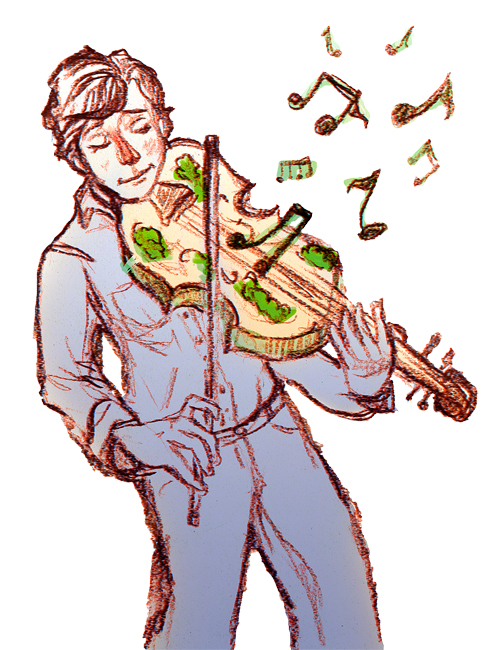DNA Encyclopedia Rewrites Our Understanding of the Human Genome
The first results from the ENCyclopedia Of DNA Elements (ENCODE) have been published this past week in 30 papers spread across three separate scientific journals written by over 500 authors. The project, designed to provide a better understanding of how the human genome works, has already uncovered results that correct our previous misconceptions about DNA and how it functions. One of the most significant findings is that more than 80 percent of the genome is active, contradicting the previous notion that it consisted largely of “junk DNA.” This, along with the numerous other findings associated with the research, will cause scientists to reconsider and further investigate the inner workings of our genetic code.
Rerun to Reboot:
One of the most interesting topics in the field of psychology is the subject of willpower. Much like a muscle, our willpower can be strengthened with exercise and, similarly, worn out through overuse. A new pair of studies conducted at the University at Buffalo’s Research Institute on Addictions found that willpower can be restored by re-watching a movie (or TV show) or rereading a favorite book. The effect seems to stem from familiarity. The subject looking to restore his or her willpower doesn’t need to worry about what will happen next and can just sit back and enjoy it. The restorative power is even stronger than in genuine social interaction in some respects, likely because social interactions offer up the possibility of “rejection, exclusion and ostracism, which may diminish willpower,” study author Jaye Derrick said.
Stradivari-fungus?:
Building a proper musical instrument is as much a matter of precision and artistry as playing the instrument itself. A Stradivarius violin, considered among the finest ever made, can cost several million dollars, a result of the craftsmanship involved as well as the wood it is built from. This wood has a low density and high elasticity as a result of growing between 1645 and 1715, the “Little Ice Age,” and helps provide the instrument’s distinct sound. Researchers have now discovered a fungus that can cause common Norway spruce and sycamore to decay and produce a wood remarkably similar to that of a genuine Stradivarius. This may result in high-quality violins at a price that even amateurs can afford.
Beam Me Further, Scotty!:
A new record in quantum teleportation has been set and officially published in the journal “Nature” this week. According to quantum mechanics, when two photons are “entangled,” a measurement of one can affect the other instantaneously. Albert Einstein famously referred to this phenomenon as “spooky action at a distance” and dismissed it as impossible since it seemed to violate his theory of relativity. However, this “spooky action” has proven to be very real in the years since Einstein’s dismissal and, according to the paper, has been demonstrated practically at a separation of 88 miles, beating the previous record of 60. If scientists can perfect this “spooky action” at greater and greater distances, it could eventually be used as a backbone for a new satellite version of the Internet, offering unprecedented levels of security in addition to increased bandwidth.
AA Earns an A:
A new study suggests that methods employed in Alcoholics Anonymous may indeed be effective. Over a 10-year period, those who attended regular meetings, helped others through the 12-step process and performed the step work themselves were less likely to drink alcohol and had an increased concern for those around them. “Being interested in others keeps you more connected to your program and pulls you out of the vicious cycle of extreme self-preoccupation that is a posited root of addiction,” study author Maria Pagan said.





















